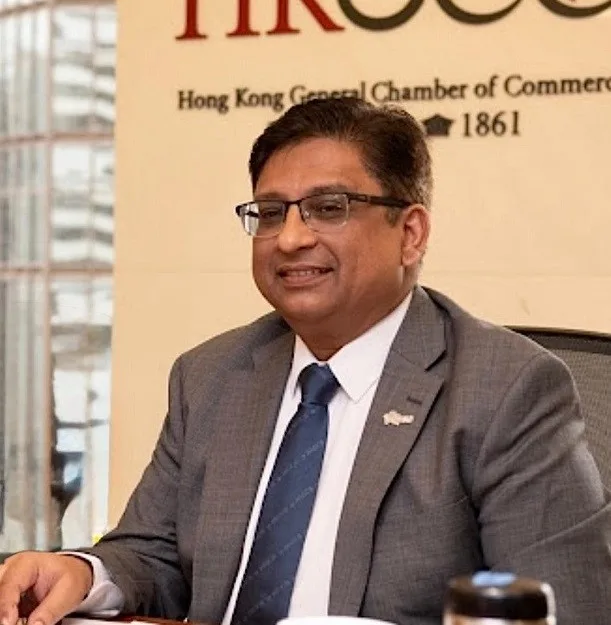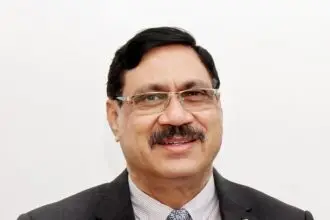In a rapidly shifting global trade landscape shaped by tariffs, new supply chain strategies, and the rise of emerging markets, Hong Kong continues to play a pivotal role as a gateway between East and West. At the helm of this effort is Dewan Saiful Alam, CEO of DSA International, President of the Bangladesh Metropolitan Chamber in Hong Kong, Advisory Board Member of Business Journal and now Chairman of the Hong Kong General Chamber of Commerce’s (HKGCC) Asia-Africa-Middle East Committee.
In this exclusive interview with Fashion Business Journal (FBJ), Dewan Saiful Alam shares his vision for strengthening Hong Kong’s outreach across more than 100 countries, the growing role of cultural economy diplomacy through halal business, the opportunities for Bangladesh in the BRICS trade order, and how chambers of commerce can empower SMEs to thrive globally. He also reflects on the role of the Bangladeshi diaspora in Hong Kong, balancing leadership across multiple institutions, and navigating the challenges of Donald Trump’s renewed tariff policies.
FBJ: You are the elected Chairman of the Asia-Africa-Middle East Committee at HKGCC. How do you see this role amplifying Hong Kong’s outreach across these diverse regions?
Dewan Saiful Alam: My committee represents over 100 countries, and we’ve seen a shift in how Hong Kong businesses approach international markets. In the past, our focus was on specific nations with strong economic foundations and sound governance. However, the tariffs imposed by Donald Trump and various policy changes have posed new challenges. In response, Hong Kong entrepreneurs and policymakers are actively exploring opportunities across a wider range of countries to gather insights for future business expansion.
As Chairman, I am committed to being proactive and initiating strategies that will provide significant benefits to our members in upcoming activities. After successfully completing my first year in this role, I was re-elected on September 9th. The experience and confidence I have gained over the past year position me to strategically plan for the future of our committee and the chamber, ensuring we are well-equipped to navigate the evolving business landscape.
FBJ: In your recent halal networking event with chambers from Bangladesh, Indonesia, Malaysia, and Pakistan, you highlighted collaboration. How important is “cultural economy diplomacy” — like halal business — in deepening regional trade ties?
Dewan Saiful Alam: Members of Hong Kong’s vibrant Muslim community are embracing the city’s growing appreciation for halal food and Muslim-friendly initiatives, highlighted by the inaugural Halal Happy Hour event, which received a very positive response. This remarkable gathering marks a significant step towards greater inclusivity and recognition, aligning with the Hong Kong government’s vision to position the city as a welcoming destination for Muslim travelers.
The halal market is a rapidly expanding sector driven by the increasing Muslim population and the rising demand for halal products across various industries, including food, cosmetics, pharmaceuticals, and finance. The global Muslim population is projected to reach approximately 2.2 billion by 2030, accounting for nearly 26% of the world’s total population. This demographic shift is influencing consumer preferences and boosting the demand for halal products.
Also Read: “Price Pressure Is Inevitable—Only Unity Can Help Us Face the 20% U.S. Duty”
The halal food market is one of the largest segments, expected to exceed $3.2 trillion by 2026. Hong Kong is eager to develop its share of the global halal business. Additionally, there are significant opportunities in Islamic finance, as Hong Kong is recognized as one of the premier financial centres in the world.
FBJ: You recently spoke at the “BRICS: Industry–Academia Dialogue.” From what you’ve seen, how is BRICS reshaping the global trade order, and where does Bangladesh fit into this evolving landscape?
Dewan Saiful Alam: The BRIC nations are increasingly working together to enhance their influence in global affairs and are advocating for necessary reforms within international institutions. A key priority for these nations is to strengthen trade among themselves and with other emerging markets, which will help reduce dependence on Western economies.
Bangladesh has emerged as one of the fastest-growing economies, largely fueled by its robust textiles sector, remittances from abroad, and a flourishing services industry. As the BRIC nations look to diversify their partnerships, Bangladesh presents a compelling opportunity for investment, thanks to its dynamic economy and labor market. In line with the aspirations of the BRIC nations, Bangladesh is committed to achieving climate resilience and sustainable development goals.
Looking ahead, the BRIC nations are navigating a multifaceted future, and Bangladesh is well-positioned to play a crucial role in trade and investment within South Asia.
Also Read: Trump’s Tariffs and Beyond – Robert Antoshak on Trade, Tariffs and Transformation
FBJ: You’ve been very active in building platforms for the Bangladeshi business community in Hong Kong. How do you see the Bangladeshi diaspora contributing to stronger trade and investment bridges with Hong Kong and beyond?
Dewan Saiful Alam: The Bangladeshi diaspora in Hong Kong has established a strong presence over the past three decades. Initially, they focused on facilitating business between Bangladesh and East Asian countries, particularly China. Hong Kong has consistently ranked as one of the top locations for ease of doing business and as a leading financial center. Our Bangladeshi enterprises have matured significantly and are now poised to explore new markets, leveraging their valuable experiences. The second generation is emerging, armed with advanced education and technological expertise. They are confident, well-connected, and ready to take the lead. With their leadership, they can contribute even more to the growth of Bangladesh and beyond.
FBJ: With Bangladesh now eyeing greater participation in global supply chains, how do chambers like HKGCC and the Bangladesh Metropolitan Chamber in Hong Kong create real pathways for SMEs?
Dewan Saiful Alam: Historically, Hong Kong has served as a vital gateway to China and the global market for Chinese goods. Bangladeshi SMEs have a wonderful opportunity to leverage Hong Kong’s expertise in trading and its financial resources. In addition to promoting its own business landscape, Hong Kong is actively engaging with the Greater Bay Area (GBA) of China. There is a strong interest among Hong Kong entrepreneurs to deepen their business ties in the ASEAN region, and they have made significant investments there.
Chambers play a critical role in facilitating networking and collaboration between Bangladeshi businesses and their counterparts in Hong Kong, which can significantly enhance opportunities for future partnerships. Additionally, governments bear a vital responsibility in developing robust business policies and fostering an environment where SMEs can explore and expand their operations. In Hong Kong, SMEs make up an impressive 98% of businesses, employing over half of the workforce and greatly contributing to the economy. The Hong Kong government’s support through funding and favorable policies sets a valuable example. Bangladesh can take inspiration from this and provide the necessary support for its SMEs to access international markets.
FBJ: You’ve been balancing roles as CEO of DSA International, President of Bangladesh Metropolitan Chamber in HK, and now HKGCC Committee Chairman. How do these roles intersect in driving your global trade vision?
Dewan Saiful Alam: I have been successfully conducting business in Hong Kong for three decades, leveraging the region’s unique position and open business environment. My focus has been on supporting the supply chain for Bangladesh’s apparel and textile industry, as well as other consumer goods. However, I recognize that there is significant potential for expansion into global markets.
Through our Chambers, we are actively connecting our members to reach international markets. The Hong Kong General Chamber is proudly celebrating its 164th anniversary and remains highly engaged in enhancing the capabilities of its members. With continuous training and strategic connections, we empower our members to diversify their businesses in line with global demands.
On the other hand, the Bangladesh Metropolitan Chamber, though relatively young at just 11 years, is making strides by actively involving its members in networking opportunities and business missions aimed at global outreach. Together, we are committed to fostering strong connections and creating avenues for international success.
FBJ: With Donald Trump’s new tariff policies reshaping U.S. trade once again, how do you think this will impact Asian exporters—particularly Bangladesh’s apparel sector? And how can Hong Kong, under your committee’s leadership, act as a facilitator to navigate these tariff challenges?
Dewan Saiful Alam: The recent tariffs introduced by Donald Trump are dramatically altering the global landscape. Numerous countries are feeling the profound impact, grappling with significant challenges as they seek out alternative markets. In this rapidly changing environment, they are not just searching for new opportunities; they are boldly exploring innovative strategies to adapt and thrive amidst the turbulence.
Bangladesh stands at the cusp of exciting short-term opportunities, buoyed by the advantage of lower tariffs compared to some of our competitors. However, the broader implications of this situation will largely hinge on the swiftly evolving landscape of trade policies. Recent shifts have been rapid and unpredictable, leading some nations with significant tariffs to explore alternative strategies and seek new markets—this may stir apprehension and provoke retaliatory actions.
Amidst these dynamics, our members are actively seeking ways to elevate their businesses across ASEAN, Central Asia, Africa, and the Gulf Cooperation Council (GCC) countries. In response, our committee is dedicated to fostering valuable connections through organized business missions, region-specific seminars, and various initiatives designed to empower and support our business community in navigating this complex global terrain.











